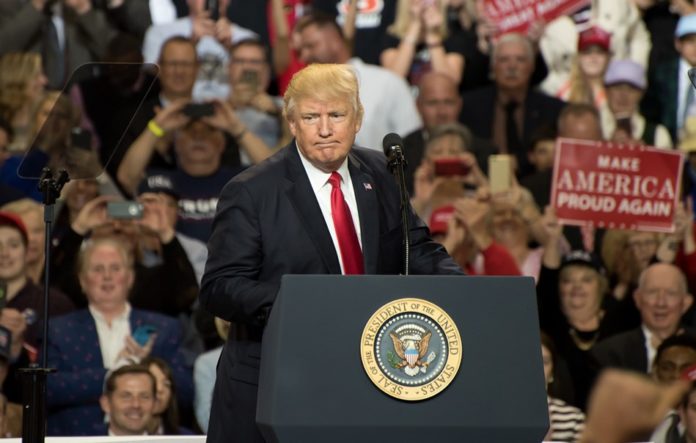Evaluating the details of the draft that is being circulated by the White House, experts believe the parties it is announcing for jurisdiction over tech giants will not be strong enough.
Trump administration is reportedly drafting an order to counter the social media ‘bias.’ This proposal puts the onus of content regulation on the Federal Communications Commission (FCC). The Trump administration looks determined to take action against social media networks’ supposed bias. This bias is claimed to be against right-wing speech.
The current draft of ‘Protecting Americans from Online Censorship,’ is also said to burden the FCC, as the department has never dealt with online content regulation. The onus of developing rules that clarify the circumstances, under which social media platforms are protected by the law, is on the agency now.
The draft also says that the Federal Trade Commission (FTC) should consider the policies that the FCC comes up with while investigating the companies for not adhering to their stated policies.
This was first reported by Politico, and CNN claims that they have read the summary of the draft executive order. According to the CNN report, the administration received 15,000 anecdotal complaints about online censorship from an online survey it launched in May.
Experts believe that, although the government can assist and support online platforms’ efforts to reduce hate online, the government must not try to impose speech regulations. Historically, politicians from both sides have urged that the government must not be in the business of regulating speech.
The Justice Department announced an antitrust review to check whether tech giants are stifling innovation or harming competition, but the antitrust cases have not been used as tools to address complaints about online speech. Experts think that the current prospects are bleak at the independent agencies as well. The FCC and the FTC have rule-making authority, but no jurisdiction.
The draft also hints that the companies whose monthly user base is more than one-eighth of the U.S. population could find themselves facing scrutiny. These include, but are not limited to Google, Facebook, Instagram, Pinterest Twitter, and Snapchat.
Although the draft is still in its early stages and is subject to change, the order might reflect a significant escalation by the President in his frequent attacks against the social media giants over alleged systemic bias against conservatives.
The proposal seeks to narrow the protections for companies under Section 230 of the Communications Decency Act, a part of the Telecommunications Act of 1996. The current law states that internet companies are not liable for most of the content that their users or other third parties post on their platforms.
Experts think that from the beginning, the legislation is interpreted to give tech companies the benefit of doubt. In this case, a potential approach that government can involve using the advantage over federal contractors is prohibiting them, like the Obama administration did to advance LGBT rights.
Earlier in 2019, Trump signed an executive order to promote free speech on college campuses. This requires schools to agree and promote free inquiry to receive federal research funding. According to reports, last month Trump held a social media event at the White House and railed against the ‘tremendous dishonesty, bias, discrimination, and suppression practiced by’ platforms such as Twitter, Facebook, and YouTube. He also added that the platforms’ silence the conservative voices, which is ‘disgraceful.’ The irony here is that the president’s personal Twitter account has over 63 million followers.







